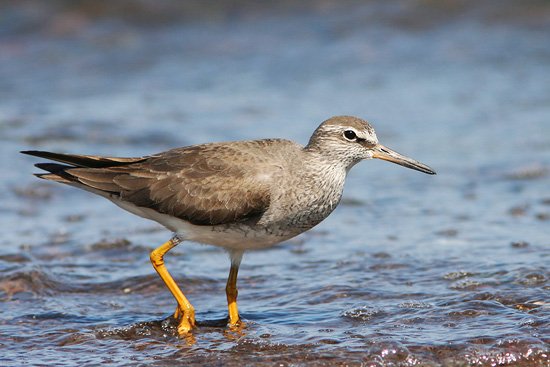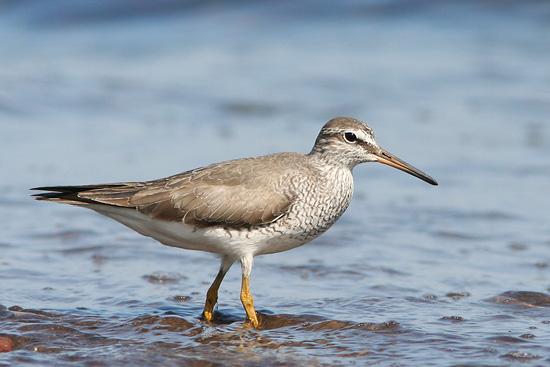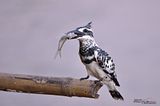 After the godwit season had passed, almost every single beaches in Beppu were filled with these small Grey-tailed Tattlers (Tringa brevipes). As a Thai birdwatcher, I was so excited when I first saw a small flock of them at the river delta near my dormitory, but after a while, I realized that these tattlers are sooo common! For people who might wonder why its scientific genus name here is Tringa, well, I just use it according to the new Robson's Field Guide to the Birds of Thailand and South-East Asia. He recently placed the tattlers into the same genus with those redshanks and sandpipers, instead of its own genus Heteroscelus, which I quite agree.
After the godwit season had passed, almost every single beaches in Beppu were filled with these small Grey-tailed Tattlers (Tringa brevipes). As a Thai birdwatcher, I was so excited when I first saw a small flock of them at the river delta near my dormitory, but after a while, I realized that these tattlers are sooo common! For people who might wonder why its scientific genus name here is Tringa, well, I just use it according to the new Robson's Field Guide to the Birds of Thailand and South-East Asia. He recently placed the tattlers into the same genus with those redshanks and sandpipers, instead of its own genus Heteroscelus, which I quite agree. 



This individual still possesses most of the non-breeding plumage.
The first group of Grey-tailed Tattler I saw was feeding at the river delta with other birds including the White-cheeked Starlings and Dusky Thrushes. Two of them were in their full breeding plumage, while another one was still possessing most of the non-breeding features. They were quite active but not as energetic as the godwit. Although relatively wary, I could finally get close to them by walking slowly with my body bent down close to the ground.Their characteristics actually really fit in the tringa group in my opinion. I can almost see it as the Common Redshank (Tringa totanus).


This one was in its full breeding plumage.

One of the outstanding habits of the tattlers is that they like rocky cliffs. Although they mostly feed on sandy or rocky beaches, they usually perch on large rocks while resting. Sometimes they can also be found perching on the same rock in a large number. The other day at Rokushou-En, I found that several large rocks were being possessed by these tiny grey tattlers. It was quite impressive for me as a bird watcher coming from a country where this species is truly a rare passage migrant. However, after few days, all the tattlers were gone, headed back to the north where their offspring will be born and wait for the next migration comes round again.














No comments:
Post a Comment